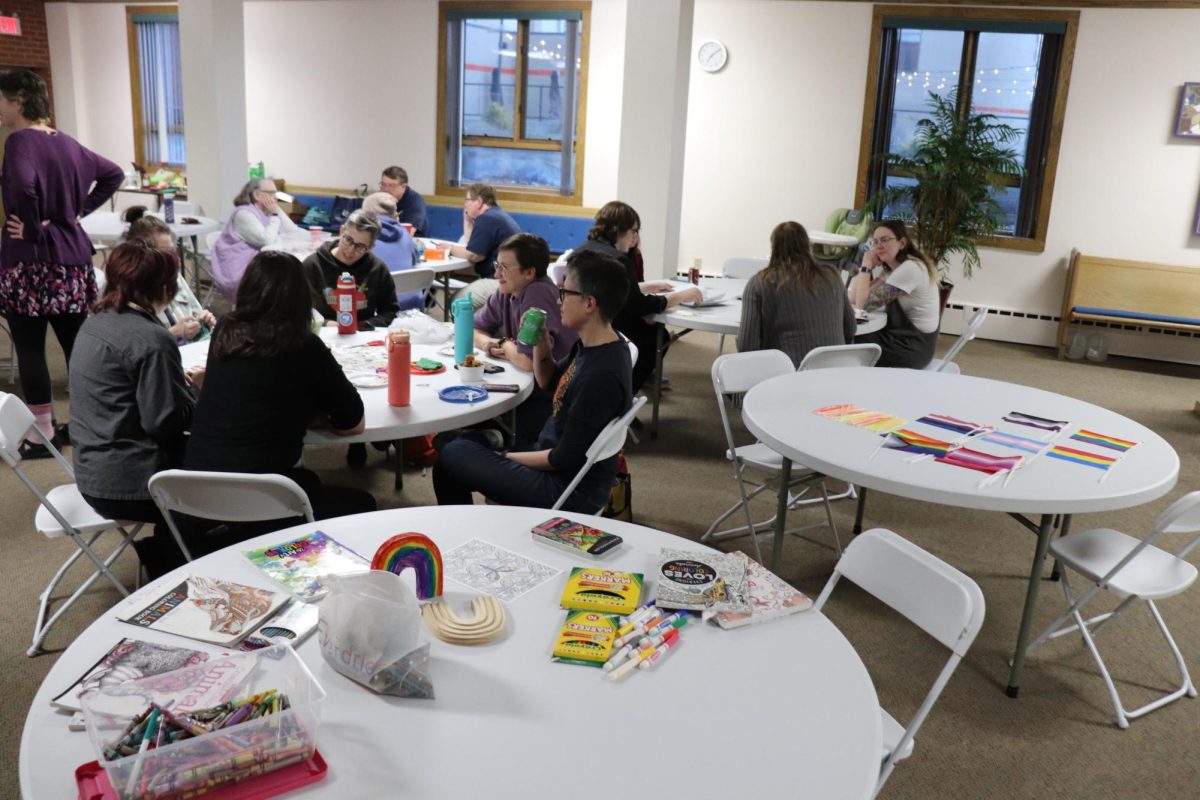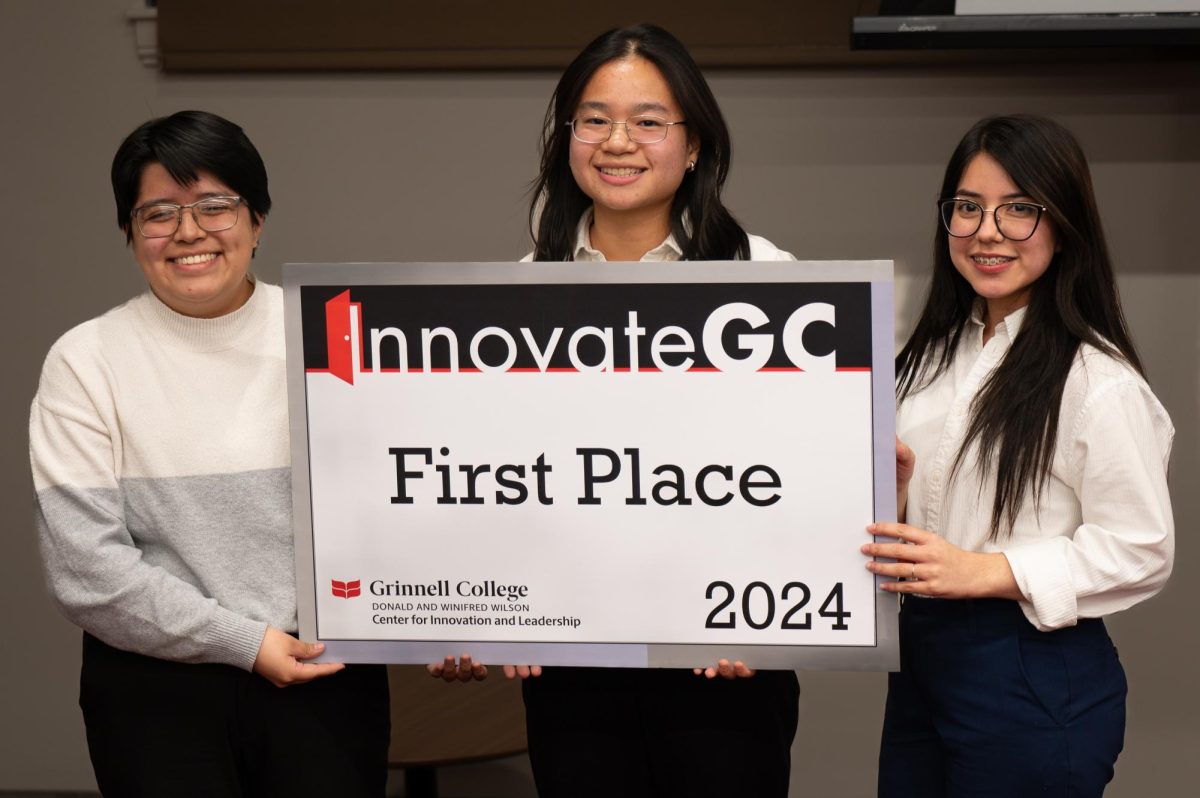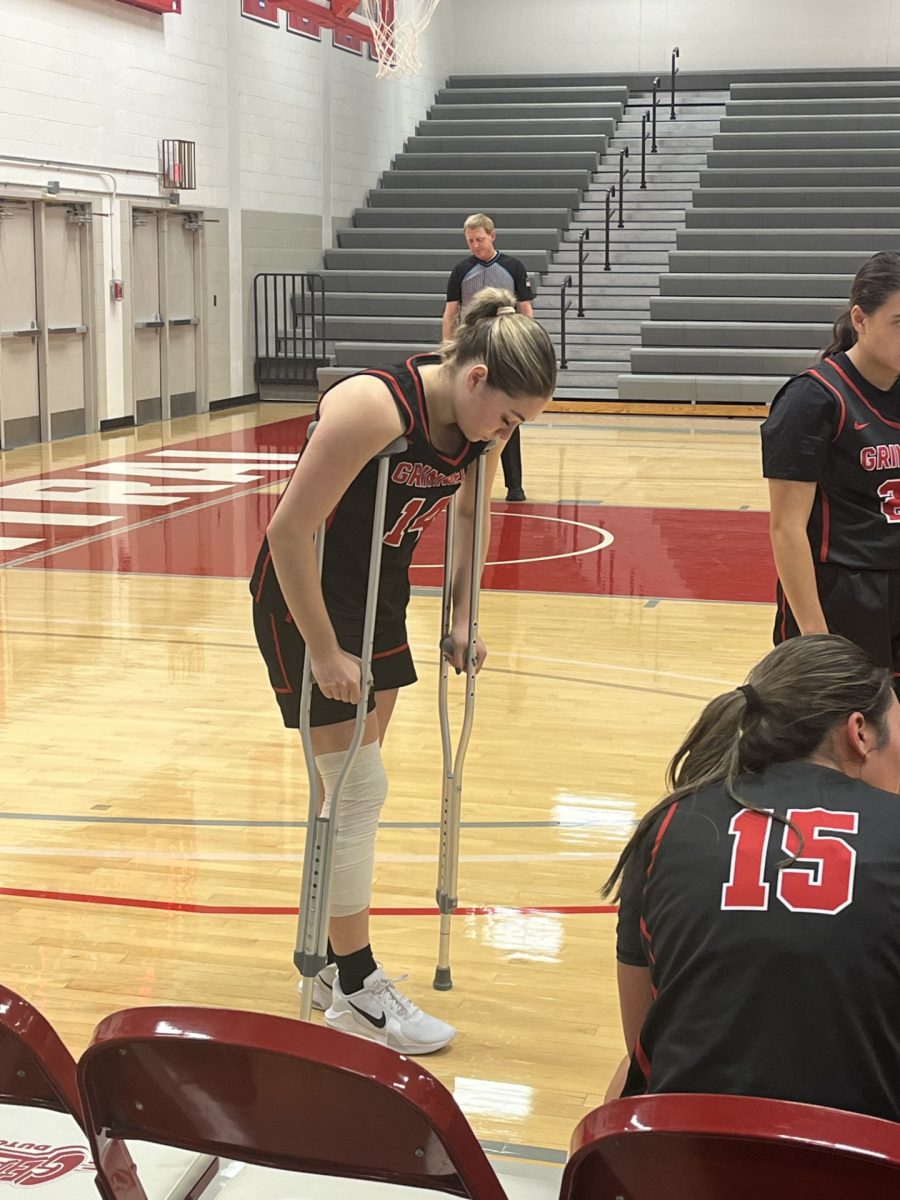On Feb. 11, environmental advocacy groups on campus hung banners that read “Are your single-use plates being composted in D-Hall? Ask [newhouse]” in the HSSC and Dining Hall to applause from student onlookers.
The banners, pictures of which can be found at @greengrinnell on Instagram, reference the disposable dishes and silverware that have been present in the Dining Hall in place of re-usable dishes since the College returned to in-person dining on Feb. 3.
While the disposable dishware is recyclable and compostable, campus environmental groups have recently raised concerns that the College does not have the capacity to compost all of the dishware, so most dishes are being discarded.
Hannah Malicky, the SGA environmental sustainability chair, said that in her capacity as a representative to the Dining Committee, she learned that “within two meals, the amount of waste they [the dining hall] produce will overflow the composting container. So they’re actually not composting anything right now that is being used as single-use in the Dining Hall, which is a major concern.”
Most compostable products in the Dining Hall are made of industrial compostable material, which require chemical conditions like oxygen and microorganisms to break down. Malicky said that when they are diverted to landfills, those products can take years to break down.
But while Malicky said that she thought that the waste was concerning, “The direct concern is the lack of transparency behind those processes from admin, which as a representative of the student body, I wasn’t even aware of because we weren’t included in the conversation.”
After reading the email sent on Feb. 2, announcing the transition back to eat-in dining at the dining hall from Ben Newhouse, associate VP of student affairs and dean of students who was referenced in the banners, Malicky said “When I, or others that I’ve had conversations with, read that we’re using compostables, we assume they’re going to be composted, not thrown away. And that’s not the case.”
In the email, Newhouse wrote, “In order to facilitate this transition [to eat-in dining], disposable dishes and silverware will be utilized for the time being. While not an ideal solution, it was more important to transition quickly for the sake of the social health of our community. As long as the supply chain permits, we will use compostable and recyclable products. As soon as we can shift to standard dish and silverware, we will do so.”
Newhouse said that after seeing social disruptions on campus and long lines at the Dining Hall as a result of mandatory to-go dining, combined with lower COVID-19 positivity rates after the College’s initial rounds of onboarding testing, Dining Services and College administration felt that they could open more quickly than expected, but that they would need to adjust their operations to make the transition possible.
“We were absolutely aware that disposable items were not going to be popular. And it was either wait until the Dining Hall can shift to a full operation and delay the opening of the Dining Hall, or go ahead,” said Newhouse, “and we felt like the social health, the calls for that from other students about what they were asking for relating to in-person dining — that just felt like a tradeoff we needed to make.”
“So we knew that was giving up something that we know is a value of the institution, a value of the student body, for a short period of time in order to provide something else that was also important to the student community,” he added.
But Malicky also said that it concerned her that no other SGA member was involved in this decision-making process, and emphasized that she would like to see more agency given to existing student bodies.
“I’ve been on SGA for the past year now. I really wasn’t involved with SGA before that. But I have seen admin consistently undermine the efforts of every single SGA member on our cabinet. And it is really hard to do our jobs when we act as a reactionary force rather than a proactive force. Everyone on that cabinet is incredibly qualified in every way. And we’re not being utilized,” Malicky said.
Newhouse said that while many of the College’s decisions were guided by SGA and student feedback, he was committed to including student voices in conversations about decisions affecting the student body.
“There’s a lot of people serving on the [SGA] cabinet, that we can tap into their experience, their passion areas, their interests and the work that they’re doing already day-to-day in order to incorporate their voice into those moments … But I think in any partnership, you can always say ‘How do we make this better?’” Newhouse said.

Malicky said that, in a meeting with Newhouse, she expressed that many students “would feel more comfortable if admin were to acknowledge when they make mistakes.”
“So I am holding it to him that, like he said, he will send out an apology email for the lack of transparency behind what was happening with the compost when we return to reusable dishware, which should be within the next week,” Malicky said.
In response to the concerns about communication, Newhouse said that “I think it was concerning when students discovered they were being discarded versus composted. And as the messenger in that moment, I wasn’t fully aware that wasn’t going to happen or that we didn’t have the capacity. And so, I want to own that, where there’s confusion, I think that was very understandable. And we’ve sought to correct that going forward, and also to make sure our messaging is as clear as possible so that students understand what the reality is as much as possible.”
Newhouse confirmed that he believed it would be “very possible” that the Dining Hall will be able to return to traditional reusable dishware within the next week.






























































